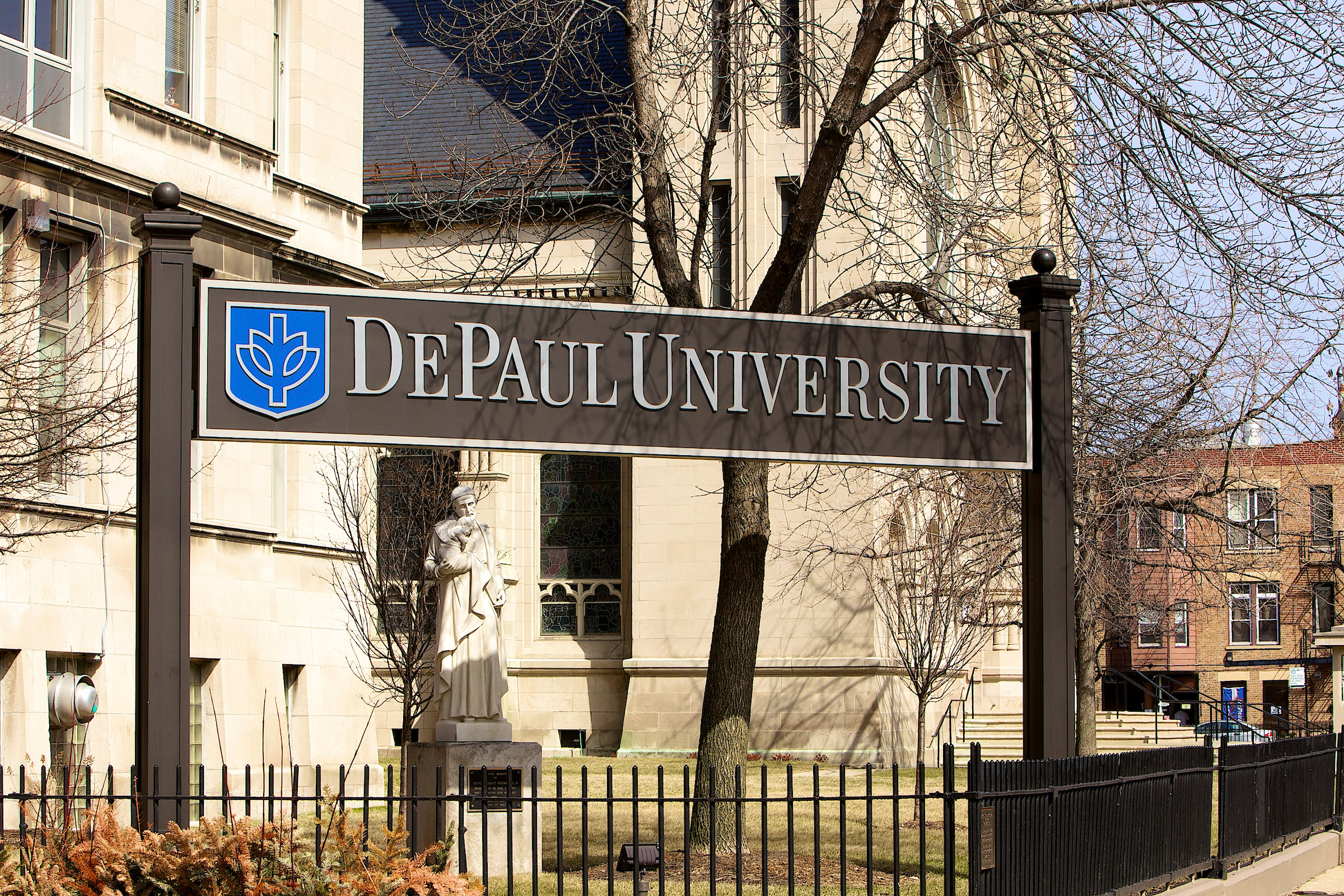 DePaul's Board of Trustees discussed potential strategic directions for the university at its October meeting as planning for DePaul's future gets underway. (DePaul University/Jeff Carrion)
DePaul's Board of Trustees discussed potential strategic directions for the university at its October meeting as planning for DePaul's future gets underway. (DePaul University/Jeff Carrion)
Following a series of educational meetings over the summer that enabled a Board Planning Task Force to take a deep dive into DePaul's current condition and its position in the higher education landscape, it was the full Board of Trustees' turn to reflect on the context for DePaul's strategic planning at a retreat held Oct. 27-28. A. Gabriel Esteban, Ph.D., president of DePaul, and senior administrators briefed trustees on subjects important to DePaul's future. Presentations were made about DePaul's financial condition, enrollment and marketing realities, mission and diversity, the student experience, the academic program portfolio and faculty strategic priorities.
"Board members took the time at this meeting to learn about higher education's competitive environment and DePaul's position in that landscape," says James T. Ryan, who holds a DePaul MBA and chairs the Board of Trustees. "As a group, we recognized the need to respond with urgency to address the challenges we face but also the extraordinary strengths of the university to respond - not the least of which is our deep commitment to our mission."
Twenty-nine of DePaul's 45 trustees are DePaul alumni.
Board members were joined at their retreat by DePaul's academic deans, vice presidents, Faculty Council officers, and Joint Council, including the presidents of Staff Council and the Student Government Association.
Several clear themes emerged from trustee discussions about leveraging DePaul's strengths to respond nimbly to a rapidly changing world. There was robust discussion about the balance between mission sustainability and economic realities. The board asked the university to consider structural changes and efficiencies in order to free up resources to fund innovation. They asked that we find ways to accelerate the development of unique programs that are market responsive, especially inter- and cross-disciplinary programs that prepare students for careers requiring the integration of knowledge and skills from multiple disciplines. Trustees challenged the university to develop new options in areas where DePaul has established an excellent reputation.
Helping adult learners who need to retool, expanding programs for cohorts and offering more certificate programs were popular proposals, as was building out the university's curricula in health fields across the university, not just in the College of Science and Health.
Similarly, trustees would like to see DePaul leverage its strength in computer science through collaboration with the other colleges and schools, and consider possibilities for engineering. They also asked that we leverage technology to increase the flexibility of course offerings and deliver selected programs to new audiences.
The trustees recognized the strength and commitment of our faculty and asked that we continue to recruit and retain faculty who can improve instruction and move forward pedagogical innovation, as well as advancing knowledge and academic programs through their scholarship.
Trustees recognized that it is critical to build DePaul's endowment to maintain affordability while increasing the value of students' degrees through the delivery of a transformative education. Accomplishing students' goals for post-graduation success will require efforts to enhance the student experience and strengthen career preparation through more internship options, among other strategies.
Jay Braatz, vice president for planning and presidential administration, reflected, "The board emphasized that strategy is about choices. They encouraged us to make bold, selective bets, and to find ways to make decisions about how to balance desires that are inherently in tension, such as our ability to serve low-income students and our need to grow net revenues."
The Board meets three times annually and will next convene in March when they review a draft plan.